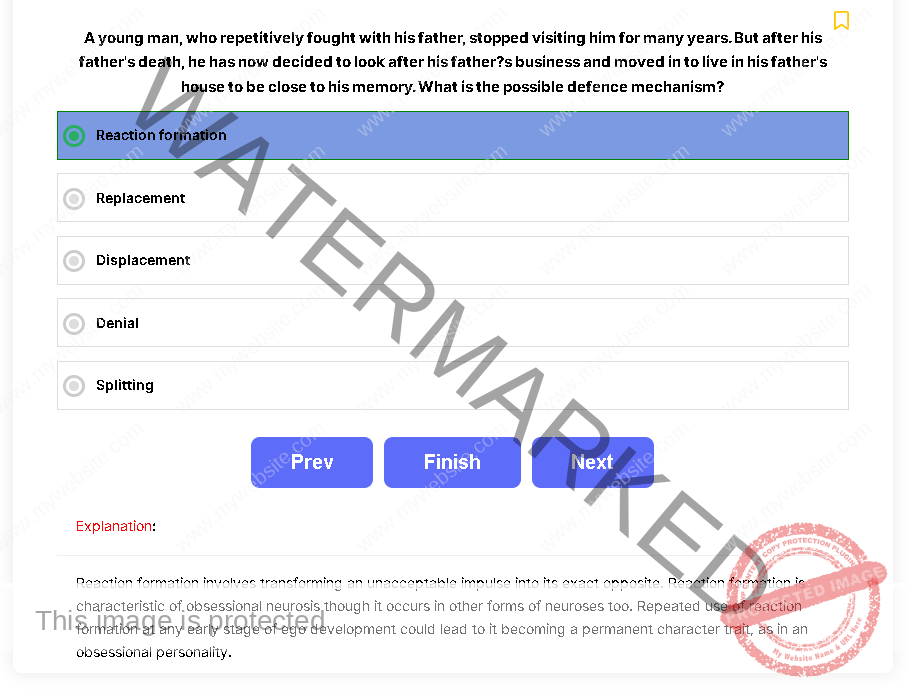A Clinician's Guide to MRCPsych Paper B
This definitive guide provides a detailed overview of the MRCPsych Paper B exam. Navigate your journey to membership with this comprehensive resource for your MRCPsych Paper B preparation.
Introduction to the MRCPsych Paper B Exam
This guide provides a detailed overview of MRCPsych Paper B—from its purpose and structure to the syllabus, eligibility criteria, application process, and core study strategies. Whether you are a UK-based trainee or an international medical graduate (IMG), this will help you navigate this important examination.
The MRCPsych Pathway
Paper B is the second written examination, building upon the foundational sciences of Paper A and preceding the practical CASC exam.
Basic Sciences
Clinical Knowledge
Clinical Skills
Why It Matters
- UK Training Progression: It is a mandatory step for progressing from Core Training (CT) to Specialty Training (ST).
- International Advantage: The MRCPsych credential is a globally respected qualification that opens doors to consultant roles worldwide.
- Breadth of Clinical Knowledge: Prepares you with the expertise needed for advanced clinical reasoning, teaching, and leadership in psychiatry.
MRCPsych Paper B: Exam Structure and Focus
Core Format
- Duration: 3 hours
- Questions: 150 total (MCQs & EMIs)
- Pacing: ~72 seconds per question
- Marking: No negative marking
Content Breakdown
- Clinical Topics (~100 marks)
- Critical Review (~50 marks)
MRCPsych Paper B Syllabus Overview
A strong performance requires a comprehensive understanding across all domains, with special focus on Critical Review and General Adult Psychiatry. This is a key part of any good MRCPsych Paper B guide.
Eligibility, Dates & Logistics
Eligibility Criteria
- Must be a fully registered medical practitioner.
- Minimum 12 months of core psychiatric training is strongly recommended for your MRCPsych Paper B attempt.
- IMGs must hold a primary medical qualification from a recognized institution.
Key Dates for 2025 (Example)
Diet 1 (Spring)
Exam: Feb 20 | Application: Dec 2–13, 2024 | Results: Mar 28
Diet 2 (Summer)
Exam: May 21 | Application: Mar 17–28, 2025 | Results: Jun 13
Diet 3 (Autumn)
Exam: Oct 8 | Application: Jul 14–25, 2025 | Results: Nov 7
Fees & Budgeting (Typical for 2025)
Fees are subject to change. Plan for study materials and potential revision courses.
- £508 for PMPT / College Affiliates
- £564 for non-PMPT trainees
Application Process
- Create/Access RCPsych Account: Ensure all personal details are up-to-date on the College's exam portal.
- Complete Application Form: Provide all required documentation, including qualifications and proof of training.
- Pay Examination Fee: Secure your application with payment, typically via card.
- Book Exam Slot: Once approved, book your test center or remote proctoring slot.
- Receive Confirmation: Keep your admission permit safe for exam day.
MRCPsych Paper B Preparation Strategy
Recommended Timeline: 4-6 Months
A structured approach is key for your MRCPsych Paper B preparation. Dedicate more time to high-weightage topics like General Adult Psychiatry and Critical Review.
High-Yield Resources
- Core Texts: Shorter Oxford Textbook of Psychiatry, Maudsley Prescribing Guidelines, Lishman's Organic Psychiatry.
- Statistics: Medical Statistics at a Glance, Essential Medical Statistics.
- Question Banks: Edubros, SPMM, PassMRCPsych, and others are invaluable for practice.
- Active Learning: Use timed mock exams, form study groups, and utilize flashcards for active recall.
Exam Day & Beyond
On the Day
Arrive or log in 30-45 minutes early. Have your photo ID and admission permit ready. Stay calm, manage your time, and attempt every question on the MRCPsych Paper B.
After the Examination
- Results: Published 4-6 weeks post-exam.
- Validity: A pass is valid for 1643 days, within which you must pass all other components (Paper A/B and CASC).
- Next Steps: Successful candidates who have also passed Paper A are eligible for the CASC.
- Retake Policy: If unsuccessful, you can re-sit up to a maximum of six attempts. Use the performance feedback to guide your next revision cycle.
Your Trusted Partner for MRCPsych Paper B
Navigate your Paper B preparation with confidence. The Edubros online course is designed to be your complete resource, providing focused, exam-oriented content to streamline your studies.
- Clear & Concise Notes: Deeply understand every concept without confusion.
- 8000+ Topic-wise MCQs: Practice questions that mirror the real exam format.
- 2500+ Past Paper Questions: Master the most frequently tested concepts.
- Unlimited Practice Attempts: Revise and improve without restriction.
InshaAllah — You Will Pass in Your First Attempt!
